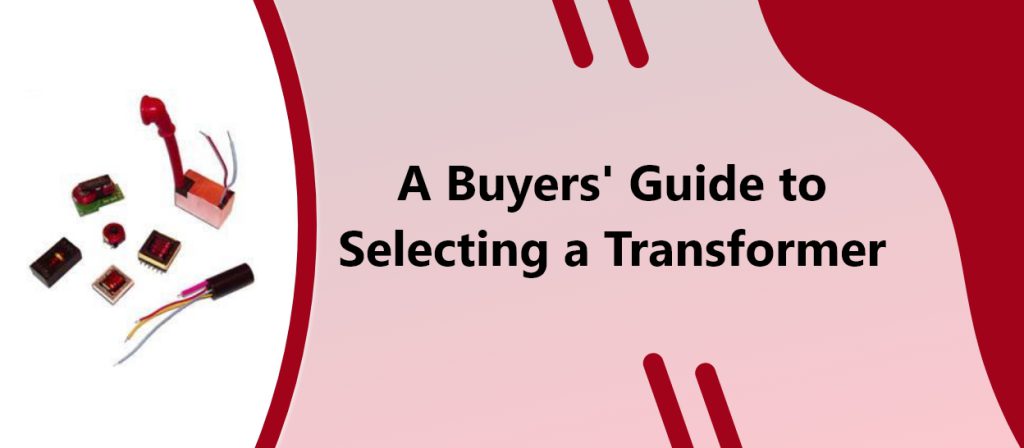A transformer is a passive device used to transfer power from one circuit to another and to step up or step down the voltage as required. It can also be used to transfer power to multiple circuits. Transformers are of various types and can be distinguished based on the winding pattern, voltage range, and core material. The application requirements or the location of installation is a crucial factor in deciding the type of transformer one must select. Also, there are custom control transformer manufacturers that can design these transformers based on specific requirements. Selecting the right transformer can be a daunting task and one would not want to make any wrong decisions. This post may serve you as a guideline as it discusses the factors to be considered when selecting a transformer.

What a Buyer Must Consider When Selecting a Transformer
Electricity is a form of energy needed in every industry and business, without which normal functioning of machines and equipment, as well as electrical and electronic appliances, is not possible. Transformers are integral to all electrical connections and circuits as they carry electrical signals across circuits. So, one must choose the right transformer as per the requirement. Here are some factors to consider when selecting the type of transformer.
- The purpose of installing a transformer is clear, which means, it may be used for the distribution of electricity from the grid to homes or designated places in an area. Such transformers typically carry low voltages.
- They may be used in high power applications such as power generation stations.
- They are also used in the measurement of current and voltage. These may be integrated into industrial systems for continuous current and voltage monitoring, especially in chemical and engineering sectors.
- They are used in certain circuits to protect the part or component and prevent voltage fluctuations. For instance, they are used in battery charging devices to control AC and voltage as well as protect the battery components.
- So, depending upon the application requirement, the correct type of transformer must be chosen.
- If you require a transformer as part of the system, it may function in auto mode. On the other hand, you can separate it from the system supply.
- Some transformers are made to withstand harsh environmental conditions, while others may be used indoors. So, location, whether indoor or outdoor, is one of the important criteria when selecting a transformer.
- While you opt for a standard type, certain applications may demand custom control transformers. In this case, you need to find a reliable player in this segment and discuss your requirements with them. This may require more initial investment than standard ones; however, that may yield better returns and save on cost in the long run.
- The type of ratings, KVA to determine the load-bearing capacity, certifications, and listings are also important criteria you must verify from the transformer manufacturer or supplier.
- Primary and secondary voltages, as well as a number of windings, are also important factors when choosing a transformer.
- The maximum possible rise in temperature of an application also must be considered, along with rated voltage and rated frequency.
- Check the materials used in the transformer core. Soft iron and silicon steel are quite wisely used materials for the core.
If you are looking for a transformer for your application, a customized one would perhaps be the best choice in most cases. However, you can opt for the standard types for power transfer or power generation applications. Whichever type you choose, ensure to source it from an authorized and certified manufacturer and supplier. Custom Coils is a well-known manufacturer of superior quality custom high voltage transformers and inductors. The company is known for its customization capabilities which help meet specific requirements of all customers across industries.
